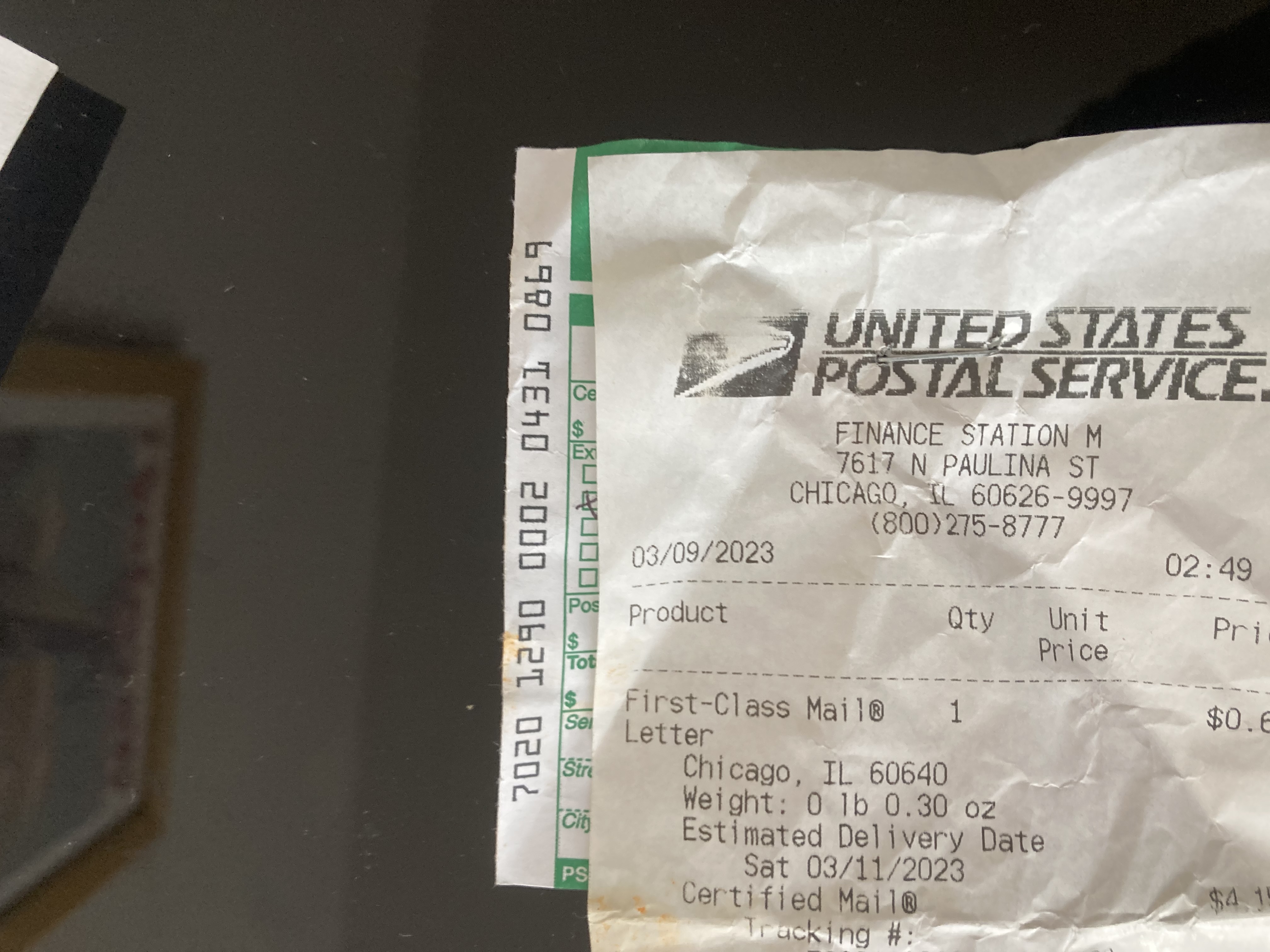- Report: #224957
Complaint Review: Ryan Homes - Newark Delaware
Ryan Homes Won't return twenty thousand dollars. Approved us then dissaproved us and will not return our money. We did eveything is good faith to keep this house Newark Delaware
Last year my wife and I were looking to buy a single family home. We stopped by Ryan Homes of Clayton, Delaware where we talked with Sugar Hill. We went through the process of being qualified. NVR Janie approved us on a Conventional 21A program. This is what Sugar Hill put on our loan. We didn't know the details of the loan.
We told Janie up front about our credit issues and let her know that by the time we moved in our balances on open accounts would be 0, and we had hoped that our scores would go up by the time we moved in. We then told her the amount of our loan, and the amount our house would sell for as we were in the final phases of selling our house. Once we were qualified we went through the process of selling our home. The profit of our home was to go on our new Ryan home. We paid off all our bad credit in order for our scores to go up.
For one reason or another NVR approved us then disapproved us. We didn't hear from NVR anymore. The next lender contact we had was Pike Creek, in May telling us settlement was coming up and they needed us to complete an application. Then we received a letter that Pike Creek Mortgage took over. We then tried the loan appliacation with Mark and Tonya on the loan. We also tried it with Tonya first and mother, and then mother first with Tonya second. Ryan extended our settlement date to allow us time to exercise our good faith attempts. We even tried an outside lender.
But because we were running out of time on the extension we were given, we couldn't do much more. At settlement we were turned down due to low credit scores of me and my wife. Katie Foraker and Jon Moats said they went below 500. On May 3 Tonya had 2 scores above 500 (one around 557 and) and one scores was at 488 (according to Pike Creek which we have shown on our documents). So we tried with our mother who's credit scores at that time were 636-613-644 (according to the documents from Pike Creek) We were still turned down. So with 2 scores above 600 our mother couldn't be qualified for a loan? So Ryan gave us a two week extension to look for an outside vendor.
No outside vendor would approve us as we were running out of time with the extension Ryan gave us. Plus Mr. Moats explained to me on a phone conversation that the Purchase Agreement states that you have to have a credit score over 500. The agreement does not state this.(if so, please show)(but our mother had 3 scores over 500) and her name was added to the purchase agreement. So what then was the reason we weren't approved if our mother had 3 scores over 600.
Our proof clearly shows it wasn't a credit score reason, was it something more. Was it because of our race? Section 3 of the Purchase Agreement clearly states the protection and return of our money under "good faith". WE DID EVERYTHING POSSIBLE to keep this house.
After all this, Sugar, Katie and Jon Moats tried to force us to sign a Ryan Homes - Delaware Division Mutual Release Agreement. We DID NOT sign this agreement to forfeit our money. This documentation was mailed to us in August. We then consulted with legal advice, and then decided not to sign the form because this wasn't fair. We tried to keep the house. We didn't just say, I don't want this house anymore lets tell them we don't want it.
We practiced all "good faith" practices to keep this house. This was our DREAM HOUSE, something to leave our kids when we pass. We wouldn't of sold our house and wasted our money and time if we knew this was going to happen.
It's been close to a year since this started. Please out of good faith return our money. We are just a poor/middle class family trying to live the American Dream in which Sugar, Katie and Jon Moats DESTROYED.
The amount owed to us is $20,777.00
Please find it in your hearts to return our money.
Mark
Newark, Delaware
U.S.A.
Click here to read other Rip Off Reports on RYAN Home Builder
4 Updates & Rebuttals
Dimitrios
Elyria,Ohio,
U.S.A.
Try contacting HUD
#2Consumer Suggestion
Tue, December 26, 2006
You did want you needed to, you gave a good faith effort in getting financed and could not. Race should have nothing to do with this. Unless the mom had income to qualify on her own, the lenders usually take into consideration the scores of ALL borrowers. Below is something that may help you: A Helping Hand in Builder Disputes By Kenneth R. Harney Saturday, November 18, 2006; F01 When home builders behave badly, some of their customers may have an unexpected resource: The federal government's "RESPA police," who say they have become increasingly active in resolving consumer complaints through nonpublic interventions with builders. RESPA stands for the Real Estate Settlement Procedures Act, a consumer protection law that targets kickbacks and other settlement-related abuses. The RESPA police are investigators at the Department of Housing and Urban Development. They are best known for their splashy public settlement agreements with real estate, title insurance and mortgage industry firms, sometimes involving hundreds of thousands of dollars. But with no public fanfare, the RESPA police have begun intervening in complaints brought by individual consumers who say builders are unfairly forcing them to use their affiliated mortgage companies. The affiliates' loan deals, the complaints say, typically are more costly than those available from independent mortgage brokers and lenders. In one case outlined by HUD officials in an interview, a builder canceled a sales contract and seized an $11,845 good-faith deposit when a buyer refused to use the builder's affiliated mortgage company. Under RESPA, builders and others generally are prohibited from requiring the use of a specific lender or title company as a condition of a sale. HUD officials talked about enforcement operations on the condition that their names not are printed because agency policy requires that they remain anonymous when discussing nonpublic investigations. According to the HUD officials, after RESPA investigators contacted the builder and gave the company 15 days to resolve the dispute, the builder -- which the officials also declined to identify because no public action was taken -- not only allowed the buyer to proceed with independent financing, but also paid the buyer's lender to lower the interest rate. In another recent nonpublic intervention, a consumer complained that a builder seized her $10,000 deposit when she refused to accept the loan deal offered by the builder's mortgage affiliate. The affiliates loan officer "fraudulently altered financial documents," according to HUD, "that would have placed the consumer in a home she could not afford." In other words, the builder's loan officer allegedly was willing to approve the buyer for a mortgage amount and monthly payments that ultimately would cause her to lose the home to foreclosure. After investigators intervened on her behalf, HUD officials said, the buyer was refunded the $10,000 deposit. In a case involving incentives dangled by many builders to attract buyers in soft markets, a prospect was offered a "free" morning room addition to the new house. The builder said the addition was worth about $13,500. The only hitch was that the purchaser would need to use the builder's mortgage subsidiary. The builder assured the buyer that the rates, fees and terms offered by the subsidiary were "very competitive" with outside lenders and brokers, according to the complaint. But when the buyer checked out the competition, he found the subsidiaries fees to be bloated -- a $5,400 "origination" charge, for example -- and far more costly than in the regular market. The buyer complained to investigators at HUD, arguing that the builder was engaged in an intentionally deceptive practice. After investigators hinted at legal action, the builder agreed to waive the $5,400 fee and threw in the $13,500 morning room, too, according to HUD. Investigators actively are pursuing other nonpublic mortgage-related complaints, officials say, including allegations that builders: Raised the prices of homes when buyers declined to use their mortgage affiliates or subsidiaries. Required buyers to deposit extra money in escrow accounts if they refused to use the affiliated lender. Pushed buyers into using a designated lender with the threat of withdrawing a $5,000 "seller's credit" toward closing costs and also adding $10,000 onto the home price. If you find yourself in a builder squeeze involving mortgage, title or other affiliates, HUD has some practical advice for you: Compare interest rates, loan terms and closing costs of several independent lenders before agreeing to use the builder's affiliate or wholly owned subsidiary. Determine whether the affiliate's rates and total charges are higher than the going market rate and offset any discounts, incentives and upgrades. If you intend to use a builder's affiliated mortgage company to take advantage of incentives and then refinance the loan to get a lower rate, be sure that the mortgage note does not contain a hefty prepayment penalty designed to discourage early refinancing. Be suspicious of large discounts or additions that are contingent upon using the builder's loan affiliate. Knowing what comparable homes in the area are selling for may help you determine whether the builder is offering a true discount or is simply raising the price of the home before offering the discount. If you have a complaint involving high-pressure tactics designed to coerce you into using a builder's affiliate, you can call the RESPA enforcement staff at 202-708-0502. Alternatively, you can e-mail [email protected]. For background on RESPA, visit http://www.hud.gov/.
Sheila
Graham,North Carolina,
U.S.A.
Could you really afford the house
#3Consumer Comment
Tue, December 12, 2006
It sounds like you really could not afford the house. All the playing around with which names go first is bound to send red flags to the lenders. Also, credit scores in the 500's and 600's are not really all that high. To get good rates you should probably have scores in the 700's or higher. It is never a good idea to purchase a home in the hopes that your credit scores will be higher by settlement. Next time, get pre-approved for a mortgage by a reputable bank. You will know up front what you can afford to spend. I will not comment on getting your money bank since I don't know the exact wording of the contracts. It sound like you may have fudged some things though and in that case too bad.
Thomas
Anderson,South Carolina,
U.S.A.
The key words here: "we had hoped that our scores would go up "
#4Consumer Suggestion
Tue, December 12, 2006
What were the contract conditions that you had signed with Ryan ???? Did you have a contigency "Contingent upon buyer obtaining financing (mortgage) of $XX for YY years at ZZ% interest by A/B/C date" ???? You are playing with a noticeable amount of money when you buy a house, and if YOU did not know EXACTLY what YOU were doing YOU should have gotten qualified guidance. Buying a house is NOT the time you should rely on hope. Race and money are not connected, because whatever your race may be will make no difference how well someone else can spend your money. However, poor judgement and loss of money ARE related. Good judgement is knowing when you will be in over your head and therefore you will get help and guidance BEFORE you do ANYTHING. Paying a buyer-broker $2000 is a lot better than simply loosing $20,000, don't you think?
Dave
New Westminster,British Columbia,
Canada
Did you have an agent?
#5Consumer Suggestion
Tue, December 12, 2006
I've recently sold a condo, then bought and moved into a townhouse. All the offers I saw included a subject to financing clause in the buyer's favor. No financing, no offer. The deposit is returned. In fact, we had one offer on our condo where the purchaser walked away and we never heard from them. They got their deposit back because of the standard wording of offers: subject to financing, which they didn't get. Were there no subjects in your offer that you could use to nullify the offer, and thus get back the deposit? Have a lawyer look at the offer. It might be a simple matter of having a lawyer write a letter on your behalf, either to the vendor or the real estate 'authorities' or maybe to small claims. If you had your own real estate agent, they are supposed to advise you on these matters, so that you are protected from this sort of thing. Maybe you have a claim against them as well. They have insurance for this sort of mistake.
























